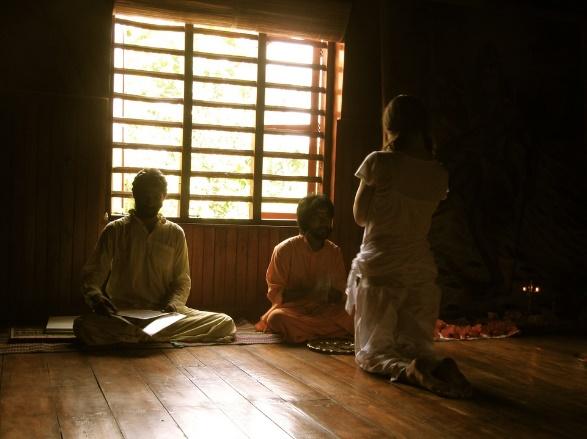
Do you ever sit down and think about what defines you? What are some of the attributes you possess and what makes you different from the rest of the people in the world? For example, you might find that certain situations make you deeply anxious while others can sail through them with ease. Or perhaps you radiate calmness and like to take your time making decisions while your partner or a friend is always on the go and quick in their actions and decisions. Ayurveda explains the reason for these differences between people.
Table of Contents
What is Ayurveda?

One of the most ancient medical systems to exist today, Ayurveda has based on the concept that every individual reflects three different energies, also known as Doshas. These energies affect each one of our body functions; from extracting nutrients from the food, we eat to the way our brain processes information.
The three Doshas – namely Kapha, Vata, and Pitta – are present in each of us but varying quantities. Some people may have Vata as the predominant Dosha, while others may have high levels of Pitta. The unique combination of Doshas present in every human being is what makes one person different from another.
The Doshas must be in balance for an individual’s emotional and physical well-being. To achieve this balance, you must first understand your Dosha.
The Three Doshas
Kapha
Comprising of the elements of Water and Earth, this Dosha is the energy that ensures cohesiveness within the body. Kapha is the fluid that ‘sticks’ – it is the lubrication and structure the body needs to keep it all together and ensure the smooth flow of all its functions. Kapha influences love, attachment, and compassion, while it also protects the joints and tissues and keeps the body hydrated.
Kapha individuals are calm, thoughtful, and stable. They have great self-discipline and can take on several tasks at once without losing focus, making them great multi-taskers. These individuals are also empathetic and patient.
As Kapha represents the lubrication in the body, too much of it can result in health problems such as congestion, excessive sweating, and obesity. In terms of mental health, it can lead to unnecessary attachment, excessive sleep, sluggishness, and a heavy mind.
Vata
It means ‘wind’ and is the energy of mobility or movement that influences all activity within the body such as breathing, the beating of the heart, muscle movements, blood circulation and elimination of waste from our system.
A Vata-dominant individual is energetic, flexible, and creative. They are always on the go but tend to suffer from forgetfulness and long-term memory loss.
Just as when the wind is too strong, it can bring about a storm, a Vata imbalance can result in anxiety, nervousness, and depression. Health problems related to dryness, such as constipation, dry and rough skin and decreased need to urinate are prone in individuals with a Vata imbalance.
Pitta
Comprising of the element of Fire, Pitta affects the digestion system in the body and the body temperature. It regulates all body functions related to transformation; be it the processing and digestion of food or how our brain processes information and situations. Pitta also affects our intelligence and understanding.
A balanced Pitta-individual is ambitious and intelligent with a sharp memory. They are mentally tough and tend to possess great focus and clarity, making them effective leaders.
However, just as too much heat is never good, a Pitta imbalance can result in mental and health problems for an individual if the ‘fire’ within becomes too much for the mind and body to handle. Common problems include anger, jealousy, inflammation, heartburn, and even ulcers.
Balancing the Doshas
Every individual has strengths and weaknesses. The Doshas can help us understand these better and identify and correct any imbalances so that a state of physical and mental well-being is intact. Here are a few ways to fix each Dosha imbalance:
- Kapha – A Kapha imbalance occurs typically due to excessive food intake, and thus, a healthy diet of fruits and vegetables can help while intake of fatty foods needs to be cut down. It is also recommended to stay active and take part in physical activities.
- Vata – As Vata imbalance often results in anxiety and depression, it can be managed well by engaging in peaceful activities such as yoga and meditation, being surrounded by nature, getting enough sleep and spending more time in stress-free environments.
- Pitta – Since Pitta imbalance results due to excessive fire or heat, it can be managed well by avoiding very hot or spicy foods and increasing intake of fresh dairy products and sweet foods. Warm weather could be avoided also, and the focus should be on staying calm and relaxed.